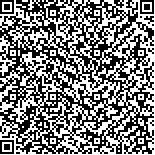黄美欢,赵秋旭,吕臻,等.中文版爱丁堡视觉步态评分在脑瘫儿童中应用的信度和效度研究[J].中华物理医学与康复杂志,2023,45(2):151-156
扫码阅读全文

|
| 中文版爱丁堡视觉步态评分在脑瘫儿童中应用的信度和效度研究 |
|
| |
| DOI:10.3760/cma.j.issn.0254-1424.2023.02.013 |
| 中文关键词: 爱丁堡视觉步态评分 步态分析 脑性瘫痪 信度 效度 |
| 英文关键词: Edinburgh visual gait score Gait analysis Cerebral palsy Reliability Validity |
| 基金项目:广东省医学科学技术研究基金项目(A2021035) |
|
| 摘要点击次数: 4089 |
| 全文下载次数: 5132 |
| 中文摘要: |
| 目的 验证中文版爱丁堡视觉步态评分(EVGS)在脑瘫儿童中应用的信度和效度。 方法 根据国际指南对原量表进行翻译和跨文化调适形成中文版,选取30例脑瘫患者的步态视频,由6位具有不同步态分析经验的评估师分别独立使用编译后的量表进行评分。测试者间和测试者内信度使用组内相关系数(ICC)进行评价,采用相关性分析和分组比较评价校标关联效度、聚合效度和区分效度。 结果 中文版EVGS 17个条目的组间ICC为0.20~0.87,组内ICC为0.41~0.90。有经验组的大部分条目具有良好的组间和组内信度,无经验组的大部分条目具有中等的组间和组内信度。相关性分析结果显示,中文版EVGS量表与PRS(r=0.77,P<0.001)和OGS(r=-0.85,P<0.001)呈强相关;与GMFM-D/E区总分(r=-0.55,P=0.002)呈中等程度相关,与10MWT(r=-0.69,P<0.001)和TUG(r=0.60,P<0.001)呈强相关。EVGS评分在不同GMFCS分级之间以及不同受累侧下肢之间的差异具有统计学意义(P<0.05)。 结论 中文版EVGS适用于不同经验水平的评估师,且应用于脑瘫儿童中具有良好的信度和效度。 |
| 英文摘要: |
| Objective To evaluate the reliability and validity of the Chinese version of the Edinburgh visual gait score (EVGS-CN) for children with cerebral palsy. Methods The EVGS-CN was established following international guidelines for translation and cross-cultural validation of health status questionnaires. Videos of 30 children with cerebral palsy were assessed independently by six raters (with different levels of experience in gait analysis) using the EVGS-CN. Inter- and intra- observer reliability were evaluated using intraclass correlation coefficients (ICCs). The correlation analysis and group comparison were used to test the technique′s criteria-related validity, convergent validity, and discriminant validity. Results The ICC values of the 17 items in the EVGS-CN ranged from 0.20 to 0.87 for inter-observer reliability, and from 0.41 to 0.90 for intra-observer reliability. Most items showed good inter- and intra-observer reliability among experienced raters, but only a moderate level when used by inexperienced raters. The EVGS-CN results were strongly correlated with those of physician rating scale (PRS) (r=0.77, P≤0.001) and observational gait scale (OGS) (r=-0.85, P≤0.001), moderately correlated with the total gross motor function measure-D/E (GMFM-D/E) score (r=-0.55, P≤0.01), and strongly correlated with 10MWT times (r=-0.69, P≤0.001) and timed up and go (TUG) times (r=0.60, P≤0.001). Moreover, significant differences in average EVGS score were found between different gross motor function classification system (GMFCS) levels and between affected limbs on different sides. Conclusion The EVGS-CN demonstrates satisfactory reliability and validity in evaluating children with cerebral palsy when it is used by an experienced or inexperienced rater. |
|
查看全文
查看/发表评论 下载PDF阅读器 |
| 关闭 |